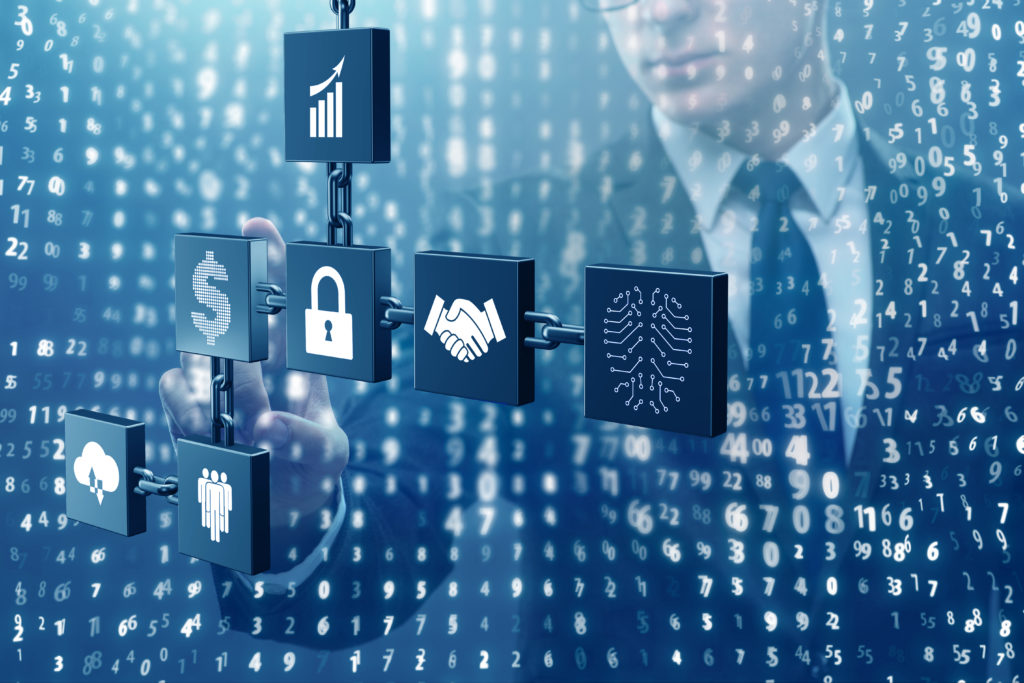
Exploring the Impact of Blockchain Technology on Data Privacy and Security in 2024-As we dive deeper into 2024, blockchain technology is proving to be more than just a buzzword—it’s a game-changer in the realm of data privacy and security. With rising concerns over personal data breaches and privacy violations, blockchain technology offers innovative solutions that are reshaping how we protect and manage our data. Let’s explore how blockchain technology is impacting data privacy and security and what the future holds for this dynamic technology.
Understanding Blockchain Technology

Before delving into its impact on data privacy and security, it’s essential to grasp what blockchain technology is. At its core, blockchain technology is a decentralized digital ledger that records transactions across a network of computers. Each transaction is bundled into a “block,” and these blocks are linked together to form a “chain.” This chain is distributed across all participants in the network, ensuring that everyone has a copy of the ledger.
What sets blockchain technology apart is its decentralized nature. Unlike traditional systems that rely on a central authority, blockchain operates on a peer-to-peer network where transactions are validated through consensus among network participants. This structure enhances both transparency and security, making blockchain a powerful tool for addressing issues related to data privacy. (Read More: Information Technology 2024: The Importance of Cybersecurity for Protecting Data)
Blockchain Technology and Data Privacy
1. Enhanced Data Ownership

One of the significant ways blockchain technology impacts data privacy is by enhancing data ownership. Traditionally, personal data is often stored and controlled by centralized entities, such as social media platforms or financial institutions. This centralized control can lead to misuse or unauthorized access to personal data.
Blockchain technology changes this by giving individuals more control over their data. With blockchain, users can maintain ownership of their data through secure digital identities. Instead of having their data stored on a central server, individuals can manage their information through a decentralized network, significantly reducing the risk of unauthorized access or misuse.
2. Improved Consent Management
Another critical aspect of data privacy is consent management. With traditional systems, obtaining and managing consent for data usage can be complex and opaque. Blockchain technology simplifies this process by using smart contracts—self-executing contracts with the terms written directly into code.
Smart contracts enable users to set specific conditions for how their data can be used and shared. Once these conditions are met, the contract automatically enforces the terms, ensuring that data is used in accordance with the user’s preferences. This transparency and automation help users retain better control over their data and enhance their privacy. (Read More: The Role of Data Analytics in Shaping the Future of Technology Business Management)
3. Immutable Data Records
Blockchain technology is known for its immutability. Once data is recorded on a blockchain, it is extremely difficult to alter or delete. This feature is crucial for data privacy as it ensures that personal information cannot be tampered with or erased without leaving a trace.
For example, in sectors like healthcare, where maintaining the integrity of patient records is vital, blockchain’s immutability ensures that medical data remains accurate and secure. This level of data integrity is particularly valuable in preventing unauthorized modifications and maintaining a reliable history of data.
Blockchain Technology and Data Security

1. Decentralized Security
Traditional data storage methods often involve centralized servers, which can be vulnerable to cyber-attacks and data breaches. Blockchain technology, with its decentralized structure, mitigates these risks. Since data is distributed across a network of computers, it is less susceptible to attacks targeting a single point of failure.
Each participant in a blockchain network has a copy of the ledger, and changes to the data require consensus from the majority of the network. This decentralized approach makes it significantly harder for malicious actors to compromise the entire system, enhancing overall data security.
2. Cryptographic Protection
Blockchain technology employs advanced cryptographic techniques to secure data. Each transaction is encrypted and linked to the previous transaction through a process called hashing. This creates a secure chain of blocks that is resistant to tampering and unauthorized access.
The use of cryptography ensures that even if a block is intercepted, the data contained within it remains protected. This layer of security is essential for safeguarding sensitive information and preventing unauthorized access to personal or financial data.
3. Enhanced Transparency and Auditability
Transparency is a fundamental aspect of blockchain technology, and it plays a crucial role in data security. In a blockchain network, every transaction is recorded and visible to all participants. This transparency allows for better auditing and tracking of data access and usage.
For organizations, this means that data handling practices can be monitored more effectively, reducing the chances of internal or external data breaches. The ability to audit data access and modifications in real-time helps maintain a secure environment and ensures that any suspicious activities can be promptly addressed. (Read More: Blockchain Interoperability: Connecting the Dots in Blockchain Technology 2024)
Looking Ahead: The Future of Blockchain in Data Privacy and Security
As we continue to advance, the role of blockchain technology in data privacy and security is expected to grow even more prominent. Innovations in blockchain are likely to bring new solutions to the challenges of data protection, further enhancing its effectiveness.
Future developments may include more sophisticated encryption methods, improved scalability for handling large volumes of data, and broader adoption of blockchain-based solutions across various industries. As blockchain technology evolves, it will undoubtedly play a pivotal role in shaping the future of data privacy and security.
Conclusion article Exploring the Impact of Blockchain Technology on Data Privacy and Security in 2024
In conclusion, blockchain technology is transforming the landscape of data privacy and security by offering enhanced control, transparency, and protection. Its decentralized nature, combined with cryptographic security and immutable records, makes it a powerful tool for safeguarding personal and sensitive information. As we move forward, blockchain technology will continue to be at the forefront of innovations aimed at improving data privacy and security, paving the way for a more secure digital future.




